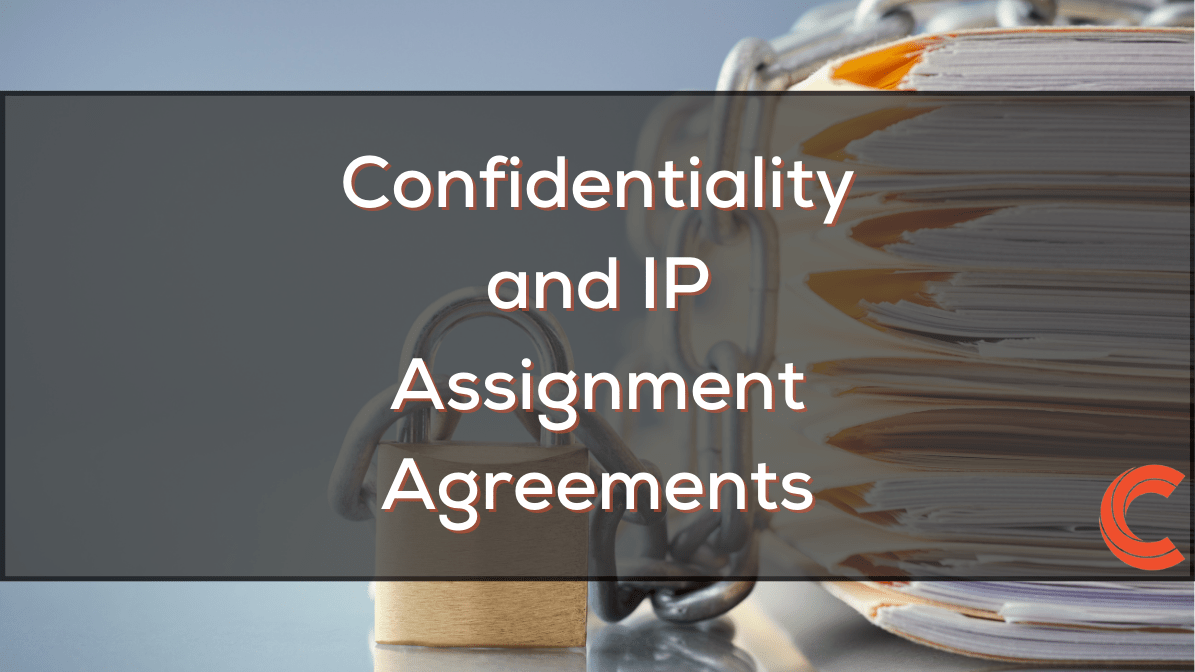In today’s competitive business landscape, innovation is the lifeblood of success. Companies invest significant resources in developing new ideas and intellectual property (IP). To safeguard these valuable assets, confidentiality and IP assignment agreements are crucial tools.
Understanding Confidentiality Agreements (CAs)
A confidentiality agreement (CA), also known as a non-disclosure agreement (NDA), is a legal contract between two or more parties. It outlines what information is considered confidential and restricts the receiving party from disclosing it to unauthorized third parties.
Why Use a Confidentiality Agreement?
There are several compelling reasons why businesses rely on confidentiality agreements:
- Protecting Trade Secrets: CAs shield sensitive information that gives your company a competitive edge, such as product formulas, marketing strategies, or customer lists.
- Facilitating Open Communication: CAs create a safe space for sharing confidential information during negotiations, potential partnerships, or discussions with potential investors.
- Safeguarding Employee Information: CAs can be used to protect sensitive employee information like salary data or personnel files.
Key Elements of a Strong Confidentiality Agreement
A well-drafted confidentiality agreement should clearly define the following:
- Confidential Information: This section clearly specifies what information is considered confidential and subject to the agreement. This might include details about inventions, marketing plans, or customer data.
- Term: The duration of the agreement outlines how long the confidentiality obligations remain in effect. This timeframe can vary depending on the sensitivity of the information.
- Permitted Use: The agreement may outline specific situations where disclosure of confidential information is allowed, such as with legal requirements or with prior written consent from the disclosing party.
- Remedies: This section describes the legal consequences if a party breaches the agreement and improperly discloses confidential information. This could involve financial penalties or even legal action.
Understanding IP Assignment Agreements
An intellectual property (IP) assignment agreement is a legal contract that transfers ownership rights of specific intellectual property from one party (assignor) to another party (assignee). This can include patents, copyrights, trademarks, or trade secrets.
Why Use an IP Assignment Agreement?
There are several scenarios where IP assignment agreements become essential:
- Employee Inventions: When employees create inventions during their employment, assignment agreements ensure these inventions become the property of the company. This ensures the company can benefit from the employee’s work.
- Acquisitions and Mergers: In mergers and acquisitions, IP assignment agreements transfer ownership of the acquired company’s intellectual property to the acquiring company. This ensures the acquiring company has full rights to utilize the acquired IP.
- Commissioned Work: If a company hires an independent contractor to develop intellectual property (like writing software or designing a logo), an assignment agreement ensures ownership rights are transferred to the company upon completion of the work. This clarifies who owns the rights to the finished product.
Key Elements of an IP Assignment Agreement
A well-drafted IP assignment agreement should clearly define the following:
- Specific IP Assigned: This section clearly identifies the specific intellectual property being transferred, such as a patent number, copyright registration details, or a detailed description of a trade secret. The more specific the description, the better.
- Scope of Assignment: The agreement specifies whether the assignment is exclusive (complete ownership transfer) or non-exclusive (assignor retains some rights). This clarifies the extent of ownership transfer.
- Warranties: The assignor may offer warranties regarding the ownership and validity of the assigned intellectual property. This provides assurances to the assignee.
- Representations: Both parties may make representations about their authority to enter into the agreement and the accuracy of information provided. This helps ensure both parties are acting in good faith.
Maximizing Protection: Considerations for Both Agreements
Here are some additional factors to consider for both confidentiality and IP assignment agreements:
- Specificity is Key: The more specific the agreement is regarding confidential information or assigned IP, the better it protects your interests. Leaving things vague can lead to future disputes.
- Carve-Outs: Certain information, like publicly known knowledge, may be excluded from confidentiality restrictions. Specifying these carve-outs helps avoid confusion.
- Dispute Resolution: The agreement should outline the process for resolving any disagreements that may arise. This can help avoid costly litigation.
Seeking Legal Help for Strong Agreements
Confidentiality and IP assignment agreements are legally binding documents. Consulting with an experienced lawyer specializing in intellectual property law is crucial to ensure these agreements are properly drafted and effectively protect your company’s valuable assets. An attorney can guide you through the legal complexities and ensure the agreements are tailored to your specific needs.
How Carbon Law Group Can Assist You
Carbon Law Group can help you with all aspects of confidentiality and IP assignment agreements:
- Drafting Agreements: Our lawyers can draft clear and comprehensive confidentiality and IP assignment agreements tailored to your specific needs. We understand the importance of clear language and will ensure the agreements are easy to understand for all parties involved.
- Negotiating Terms: We can help you negotiate favorable terms in the agreements to maximize your protection. Our experienced attorneys will represent your interests and ensure the agreements are fair and balanced.
- Reviewing Existing Agreements: If you have existing confidentiality or IP assignment agreements, Carbon Law Group can review them and ensure they still adequately protect your interests. We can identify any potential weaknesses and recommend revisions if necessary.
By working with experienced legal counsel, you can ensure your confidentiality and IP assignment agreements are effective tools for safeguarding your company’s valuable intellectual property.
Conclusion
Confidentiality and IP assignment agreements are essential tools for protecting your company’s innovation and intellectual property. By understanding the purpose of each agreement, the key elements they should contain, and the importance of seeking legal help, you can ensure these agreements are working for you.
Additional Resources
For further information on intellectual property protection, consider these resources:
- United States Patent and Trademark Office (USPTO): https://www.uspto.gov/
- World Intellectual Property Organization (WIPO): https://www.wipo.int/
If you have specific questions about confidentiality or IP assignment agreements, or require assistance with any other legal aspects of your business, don’t hesitate to contact Carbon Law Group. Our team of experienced attorneys is here to help you navigate the legal complexities of protecting your intellectual property and ensuring your business thrives.





